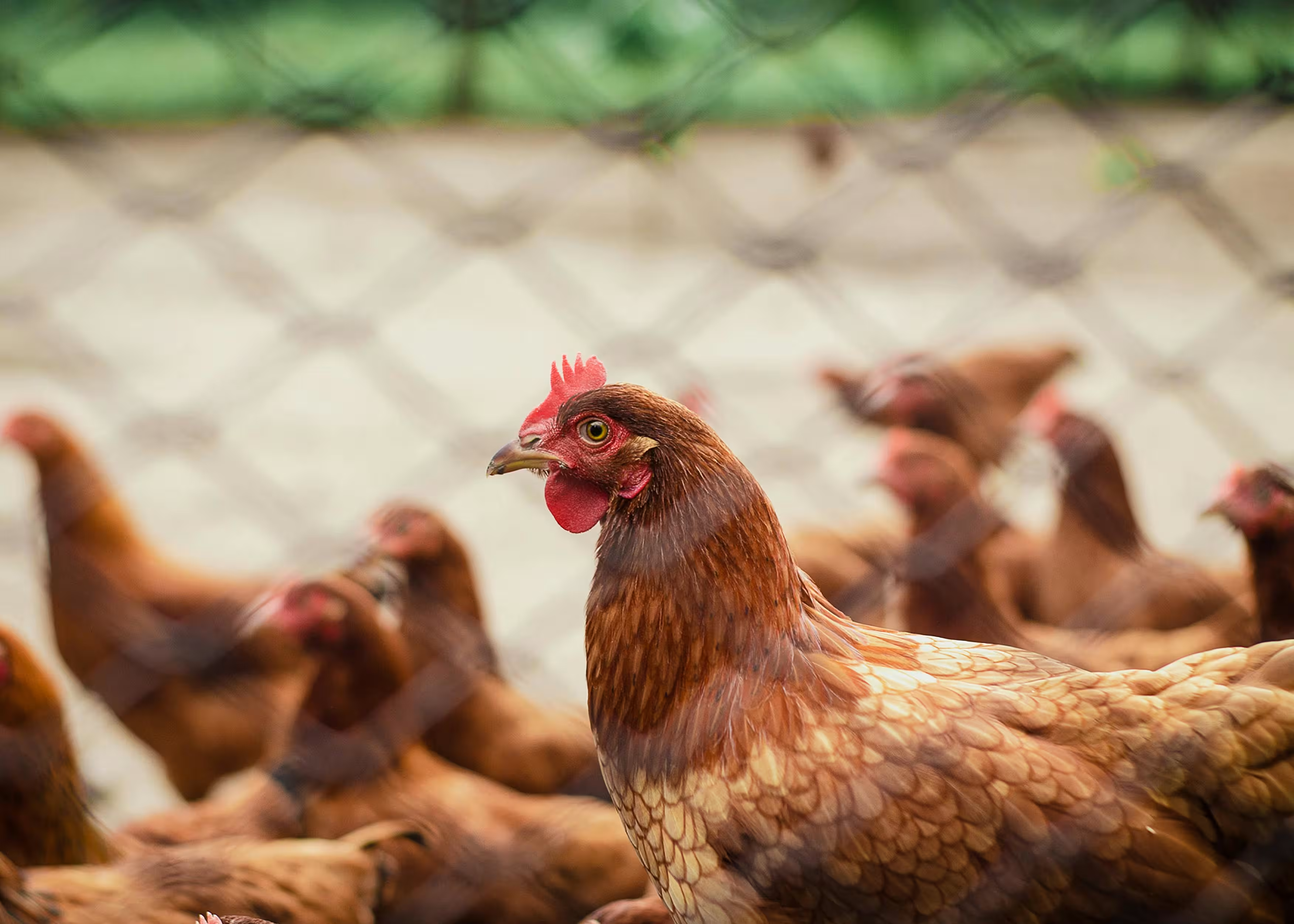THE OPEN WING ALLIANCE RELEASES NEW EUROPEAN CHICKEN COMMITMENT PROGRESS, REVEALING SIGNIFICANT ADVANCES IN BROILER WELFARE





As more corporations adopt the European Chicken Commitment (ECC), it is helping to raise the minimum bar of industry standard in eradicating some of the cruelest practices in industrialized animal agriculture.

(London, UK - July 16, 2024)—Today, the Open Wing Alliance (OWA), a global coalition of 95 animal protection organizations, releases the inaugural European Chicken Commitment Progress Report. The report highlights corporate progress towards higher welfare for chickens raised for meat (“broiler” chickens) across Europe. As more corporations adopt the European Chicken Commitment (ECC), it is helping to raise the minimum bar of industry standard in eradicating some of the cruelest practices in industrialized animal agriculture.
The ECC is a science-based, six-point corporate animal welfare policy, derived from the Better Chicken Commitment in the U.S. and Canada. The ECC helps to mitigate the severe suffering associated with intensive chicken farming and is becoming industry standard with more than 380 EU corporations on board. It addresses critical welfare concerns for chickens raised for meat, including fast-growth breeds, lack of enrichment, high stocking densities, and the cruel industry practice of live shackle slaughter.
Trailblazers like Norsk Kylling in Norway and 2 Sisters Food Group in the United Kingdom demonstrate that meaningful progress is achievable. Norsk Kylling transitioned to 100% ECC compliance in 2022 improving the lives of 13 million chickens annually. While 2 Sisters, the largest UK broiler supplier, has achieved 20% ECC compliance, impacting 100 million chickens annually.
“Chickens are raised and killed for food more than any other land animal—enduring some of the harshest conditions in factory farms,” said Abby Sarfas, Global Corporate Engagement Projects Specialist for the Open Wing Alliance. “The European Chicken Commitment helps to reduce their daily suffering, including a shift away from breeding chickens to grow so big and fast that they’re unable to hold up the weight of their own bodies. The widespread implementation of this corporate policy signifies a positive step forward for the welfare of chickens raised for meat in Europe.”
Positive impacts from ECC implementation: “Our animals live longer and healthier than comparable broiler chickens...The lower mortality rate and significantly lower illness and injury rates improve profits. We also achieve better yields with our slower growing breed and can therefore offer our meat at the same price or even cheaper than Ross chicken [a standard fast-growing breed] meat on the Norwegian market.” —Hilde Talseth, COO, Norsk Kylling
As more companies commit and report on their progress towards higher welfare chicken, the ethical and economic benefits are clear:
Norsk Kylling experienced a 39% reduction in daily mortality of chickens, a 79% decrease in transport deaths, and an 80% lower incidence of ascites (fluid in the abdomen); Marks & Spencer saw a 33% market trade increase; Plukon Food Group,__ one of the largest poultry meat processors in Europe, had a 113x decrease in antibiotic usage.
Progress by Country:
*“Signing up to the European Chicken Commitment isn’t just a box-ticking exercise for us. We’re doing this because we truly believe it’s the right thing to do. Chicken is our business and we have a responsibility as the chicken brand to make sure we’re pushing improvement to chicken welfare standards across our supply chain. Our business depends on the health, sustainability, and reputation of chicken farming and our customers care about improving the lives of the chicken we buy. That’s why we’re adding our voice to the campaign and encouraging others to do the same—because to inspire real change and provoke meaningful action, we need the industry to move with us.” —Paula MacKenzie, General Manager of KFC UK & Ireland *
Increased consumer concern about the treatment of animals on factory farms has prompted companies across Europe to commit to the ECC:
- United Kingdom: Supermarkets such as Tesco, Sainsbury’s, Lidl, Co-op, and Morrisons are advancing ECC criteria for stocking density;
- France: All major retailers have committed to the ECC and are making significant progress, including Carrefour, the largest retailer in France;
- Norway: Retailers like Rema 1000 alongside their producer Norsk Kylling lead with nearly full ECC compliance;
- Denmark: The entire convenience sector, with around 40 companies, has embraced the ECC.
“As the years go by, more and more people are asking for higher welfare birds that are still competitively priced, and that’s what we’re proud to deliver to help feed the nation.” —2 Sisters Food Group CEO, Ronald Kers
__Progress by Sector: __
ECC commitments are increasing among a wide variety of industry sectors:
- Retailers: Major commitments from French retailers, including Carrefour and E. Leclerc; German chains, such as ALDI Nord and ALDI SÜD; and UK stores including Marks & Spencer and Waitrose;
- Hospitality: EU-wide commitments from hotel chains like Accor and Scandic Hotels.
- Catering: Major catering companies, including Sodexo and Compass Group, have pledged to implement the ECC;
- Manufacturers: Notable commitments by Nestlé, Unilever, and Kraft Heinz.
To view the report, click here. To take action for animals, visit Action.OpenWingAlliance.org. For more information on the Open Wing Alliance, please visit OpenWingAlliance.org.





